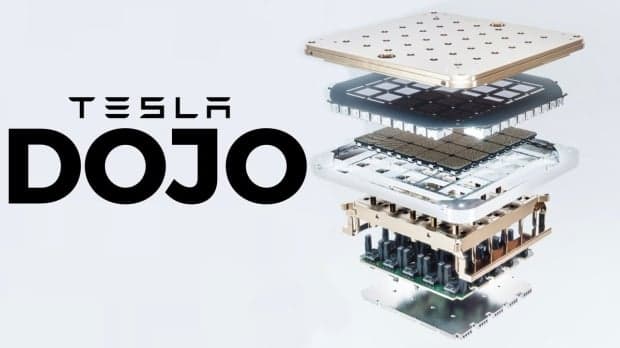Tesla's Dojo Supercomputer Project Disbanded 12 Months After Being Deemed 'Essential'

Tesla has officially disbanded its dedicated Dojo supercomputer team, marking a significant strategic pivot for the electric vehicle manufacturer's artificial intelligence initiatives. The move, reported by journalist Ed Ludlow, follows a rapid shift in the project's status, with Dojo transitioning from being considered "essential to shutdown in 12 months," as stated in his recent tweet. This decision underscores Tesla's evolving approach to developing its self-driving and robotics AI capabilities.
The Dojo supercomputer, first unveiled in 2021, was designed to process vast amounts of real-world video data from Tesla vehicles, aiming to accelerate the training of its Full Self-Driving (FSD) neural networks. Analysts at Morgan Stanley had previously estimated that Dojo could contribute as much as $500 billion to Tesla's market value by enabling robotaxi services and advanced AI software. The project was initially seen as a cornerstone of Tesla's ambition to achieve full autonomy and advance its humanoid robot, Optimus.
Tesla CEO Elon Musk confirmed the disbandment, explaining that the project had become "an evolutionary dead end." Musk elaborated on X, stating, "It doesn’t make sense for Tesla to divide its resources and scale two quite different AI chip designs." The company will now consolidate its efforts on its AI5 and AI6 chips, which he noted "will be excellent for inference and at least pretty good for training," streamlining its hardware development.
The strategic shift has led to significant personnel changes within Tesla's AI division. Peter Bannon, who led the Dojo project, has reportedly left the company. Additionally, approximately 20 engineers from the Dojo team previously departed to co-found DensityAI, a new startup focused on AI data center services, led by former Dojo head Ganesh Venkataramanan. Remaining Dojo personnel are being reassigned to other data center and compute initiatives within Tesla.
This pivot indicates Tesla's increased reliance on external partners for its high-performance computing needs. The company has recently secured a $16.5 billion deal with Samsung for the manufacturing of its AI6 chips and continues to utilize hardware from Nvidia and AMD. Musk suggested that a future supercomputer cluster leveraging many AI5/AI6 chips could be considered "Dojo 3," indicating a conceptual continuation of the project through a unified chip architecture.
The disbandment comes as Tesla faces various challenges, including fluctuating EV sales and the rollout of its robotaxi service, which has encountered scrutiny. By streamlining its AI hardware development, Tesla aims to optimize resources and accelerate its progress in autonomous driving and robotics, focusing all efforts on a singular, powerful chip design for both in-car inference and large-scale training.